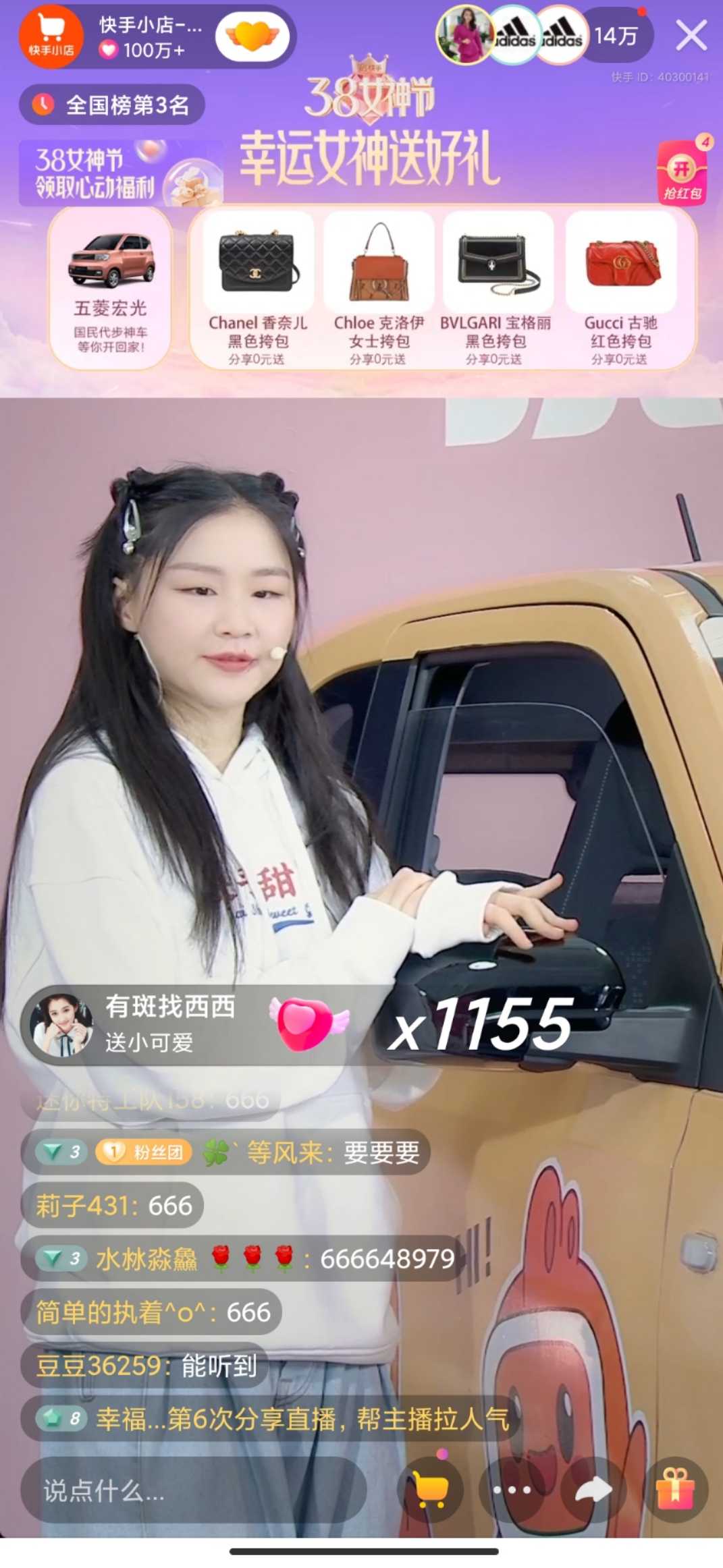Beijing-based short video and livestreaming app Kuaishou (HKSE: 1024) for the first time brought electric vehicles to its e-commerce platform on Monday, teaming up with SGMW, the joint venture of SAIC Motor, Liuzhou Wuling Motors, and GM China.
Kuaishou Xiaodian, which means small shops, sold the mid-end version of the Hongguang Mini EV in two livestreaming sessions, offering a RMB 5,000 (USD 765) discount from the original price of RMB 32,800 (USD 5,022). Wuling also provides two other models of the same brand, which is the top-selling EV in China, beating Tesla.
In the first session, hosted on Monday evening on the official Kuaishou Xiaodian account, the vehicle was co-promoted by two female livestreamers, along with four other items—bags from Chanel, Bulgari, Gucci, and Chloé. Viewers could add the vehicle into a shopping cart, although the inventory was already cleared minutes after the show started. Those who shared the event with many people had also the chance to win one of five cars in a lottery.
In a second session later in the night, male influencer Zhang Ersao introduced the Hongguang Mini to his audience, explaining that one can easily pick up the car from the nearest dealer and expect post-sale service directly from the automaker. All 200 EVs were sold immediately, after which the livestreamer just sang and danced along with his team to amuse his followers.
“Livestreaming could help Wuling increase sales,” auto analyst Zhang Xiang said on Monday. “EVs are more suitable for this kind of promotion.” Traditional automakers and dealers used livestreaming during the pandemic, but like houses, vehicles are big-tickets items and did not perform very well, he added.
“It seems that Wuling is exploring a direct-sale model via livestreaming to bypass its established dealers,” said Ke Yan, lead analyst at DZT Research. Wuling, as a traditional brand, will need to balance out its sales methods, he added. EV players such as Nio, Xpeng, and Li Auto currently all distribute their vehicles directly to consumers, without a dealer network in between.
“In the future, inevitably, more automakers will sell cars directly on Kuaishou,” the company stated in a press release, pointing out that the firm and Wuling have formed a “deep cooperation.”

“My first intuition is that Kuaishou wants to boost its GMV (gross merchandise volume) to be in line with the e-commerce story the company told its investors, since the livestreaming move itself is definitely loss-making,” Ma Rui, a US-based investment veteran and co-host of the Tech Buzz China podcast told KrASIA on Tuesday. Kuaishou seems to follow Pinduoduo’s strategy in expanding its offerings, since that works well, she added.
Pinduoduo ventured into auto sales by bringing Wuling gasoline vehicles to its marketplace in 2019. The company later also offered Cadillacs and Teslas, without the carmakers approval, creating an outright conflict between the companies. Aside from high-end vehicles, the Shanghai-based firm also sells iPhones on its app, in an effort to upscale its offer and throw out its image of selling low-end products.
“Three years ago, when you first heard that Pinduoduo is selling iPhones, it was surprising, but now, it is normal,” Ma said. Kuaishou does not have as much an “image” issue as Pinduoduo, but the company still needs to enrich the assortment of goods it offers, she added.

